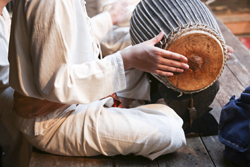Arts festivals and EU culture
Funded by the EU, the 'Art festivals and the European public culture' (EURO-FESTIVAL)(opens in new window) project assumed a comparative methodological approach to study arts festivals and their significance in the European public sphere. Research was based on a set of 13 case studies of well-known festivals covering the genres of film, literature and music. Three mixed-arts urban festivals were also included in the study. The case studies offered a basis for sociological inquiry into the institutional and social processes underlining the organisation, reception and representation of festivals. Another point of focus was the role of festivals for creating and communicating particular aesthetics, politics and ideas. Research combined elements from the sociology of culture ('production' or 'input' side of culture) and cultural sociology ('outputs' or symbolic strategies of representation and performance). EURO-FESTIVAL interviewed festival directors, sponsors, artists, journalists and other relevant stakeholders. In total, project partners completed 130 narrative interviews and amassed a wealth of information through shorter informal discussions with audiences and artists during fieldwork. Analyses covered discourse and text, publicity, media, and networks and finances. Fieldwork observation involved study of the overall staging of each case study festival, specific festival events, and other aspects such as audience size and type, reactions to performances and discussions that followed. Detailed findings have been presented in two reports titled 'European arts festivals from a historical perspective' and 'European arts festivals: cultural pragmatics and discursive identity frames'. A synthesis of results has been provided in the deliverable titled 'European arts festivals: creativity, culture and democracy'. EURO-FESTIVAL outcomes have implications for policy, in particular as related to the presence (or lack thereof) of the EU as sponsor, and opportunities for 'branding' and internationalisation. Further research in this area could help boost the potential for such events to leverage EU culture and address issues at the core of European values.




